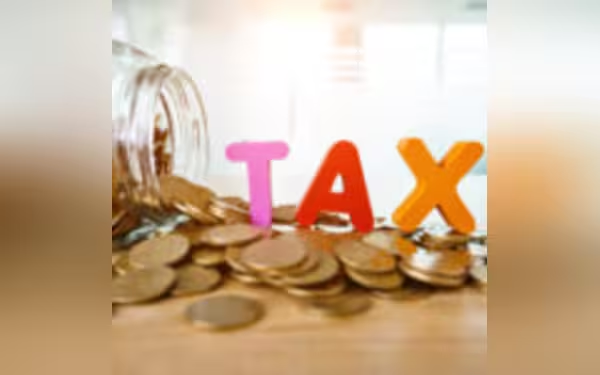Thursday, July 4, 2024 05:46 PM
Pakistan Considers Carbon Tax to Boost Revenue
- Introduction of carbon tax and petroleum levy to enhance tax collection
- Alignment with IMF's VAT system objective for financial streamlining
- Focus on increasing federal revenue and attracting international financial support
 Image Credits: pakistantoday
Image Credits: pakistantodayPakistan is exploring the introduction of a carbon tax and potential increase in the petroleum levy to boost revenue, align with global standards, and enhance environmental sustainability.
The Pakistani government is contemplating the introduction of a carbon tax on petroleum products as part of its efforts to enhance tax collection and address environmental concerns. This initiative aligns with the International Monetary Fund's objective of establishing a consistent value-added tax system to streamline financial transactions.
Officials are discussing the possibility of increasing the petroleum levy, which could lead to a substantial rise in federal revenue since these taxes are collected by the central government. By implementing a carbon tax and raising the petroleum levy, Pakistan aims to attract international financial support, including access to green bonds and favorable loans, in line with global climate-focused investment standards.
The IMF recommends the reintroduction of a standard GST on petroleum products and a petroleum levy to create a more comprehensive VAT system. National authorities are also exploring the option of reinstating a carbon tax or raising the petroleum levy to bolster federal revenue. Plans are underway to better align social welfare programs like the Benazir Income Support Programme with inflation rates to improve aid distribution.
To expand the tax base, the government intends to leverage digitization initiatives and encourage voluntary registration for retailers. Measures such as imposing penalties for non-compliance and increasing withholding tax rates on bank transactions are being considered to boost tax compliance.
Furthermore, reforms are being implemented to increase the tax-to-GDP ratio by 1% annually, supporting fiscal adjustments for economic stability. The finance minister is planning to revamp pension systems, adjust energy tariffs, and promote private sector participation to address circular debt. As Pakistan gears up for its upcoming IMF review, the government remains vigilant about potential challenges but is dedicated to stabilizing the economy through stringent monetary policies and market-based exchange rates.
The proposed implementation of a carbon tax and potential increase in the petroleum levy in Pakistan signify a significant step towards generating additional revenue for the government while also demonstrating a commitment to environmental sustainability. These measures, if executed effectively, have the potential to not only boost the country's financial resources but also align its development strategies with global standards for climate-conscious investments.













